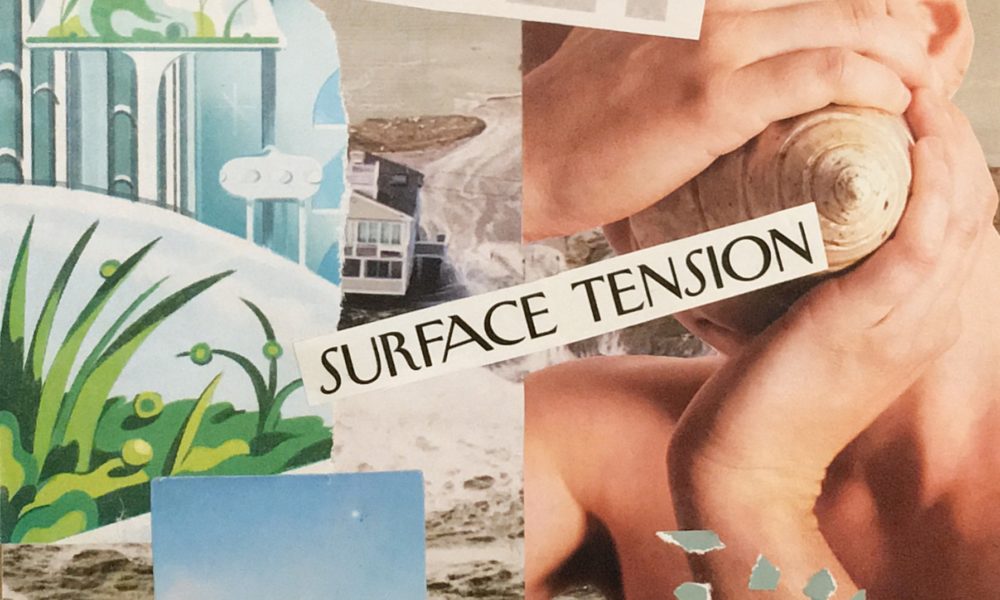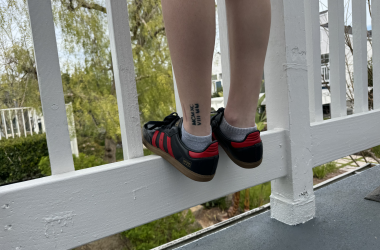In my freshman year of high school, two senior boys were dating each other. Being oblivious, I barely understood what that meant but I knew of the whispers and the disapproval that circulated the rumor mill around my high school.
Then in 2015, the Supreme Court made marriage equality rule of the law. That Sunday, my Chinese Christian elders expressed what a sad day it was that the rainbow, which was supposed to represent God’s promise to never flood the earth after Noah’s Ark, was being used as a symbol of a sinful movement. Looking back, it was a bittersweet moment where I had finally learned the language I could use to describe myself—but I was filled with self-loathing.
That summer former president Donald Trump announced his candidacy for office and I was riding with my friend to watch a movie. I looked up to her because she was like an older sister to me, and we had grown up in the same church community for our entire lives.
“I hope that Donald Trump gets rid of the gay community,” she confided in me.
After “coming out” to my mother in my sophomore year of high school she denied my ability to define my sexuality.
“How can you even know?” she asked me. “You’ve never even dated someone before.”
She was convinced that this attraction I felt for other girls was something that could be healed, like the miracles of making lame men walk if I prayed hard enough.
Growing up I went to Bible camp, Vacation Bible School, every Sunday as a kid I attended Awana where I also recited in bible verse competitions. My parents are active in our church and I was a poster child. The aunties and uncles loved my bubbly personality but a part of myself was dying. I hated lying and I was concealing something that I knew would uproot myself from my religious and cultural community.
The internalized hate ran deep, I tried to pray. I tried to ignore this part of my identity. Even after going to college, most of my friends didn’t know. Not that they wouldn’t accept me, but because I was still afraid and saying it out loud would make it true and permanent.
During my first week of college, a peer spread rumors in the dorms that I was homophobic because I had shared how my faith was helping me overcome sin. I was paralyzed with fear as people refused to make eye contact in the hallways because correcting them would mean revealing myself. Thankfully as the year went on and people met me, they realized that these comments were not true.
One of my friends didn’t understand why I was so afraid.
“Nobody is judging you,” she said.
She identifies as part of the LGBTQ+ community, but she still failed to understand what it was to become a pariah in my Chinese Christian community. Our bubble was created for safety and survival as new immigrants, but it was also extremely isolating. I felt such a strong responsibility to uphold my parent’s reputations and to maintain peace.
I didn’t know anyone close to me at that time who would support me unconditionally. Even now, members of my religious community mask their homophobia with “well-intentioned” prayers for me. It’s honestly quite belittling they assume they know me better than I know myself just because they saw me grow up.
Fall of 2019 I took a series of poetry classes where I read several love poems out loud. It was the first time I had ever “come out” to strangers. It was the first space I felt seen and accepted with other queer and BIPOC writers.
That October I did an interview with the Forty-Niner for their Outober series interviewing members of the LGBTQ+ community. I look back on my past self with much more compassion now. I was so nervous I couldn’t speak in full sentences and I was breaking down every other word. I knew friends and family would watch this; I knew nothing would be the same.
When I finally “came out” on social media in the beginning of 2020, I felt like a huge weight had been lifted off my chest. At the time, I self-identified as bisexual but I knew internally I was holding some hope for my parents that I could fall in love with a nice Chinese Christian boy and put this all behind us.
Now if this were your typical Hollywood movie the climax would have arrived in one large moment when I tell everyone “I’m gay.” However, it’s never that simple. Western imagination fetishizes and distills LGBTQ+ narratives into the concept of the singular “coming out” event usually to be with a significant other.
I recently rewatched Eugene Lee Yang’s coming out video that he released during Pride of 2019. Prior, the YouTuber hadn’t associated himself with any labels, many fans speculated he was bisexual or pansexual. No lines are spoken, but as Yang dances amongst the other actors, his demeanor expresses how he interacts with the world around him. The percussive claustrophobic breathing, the pressure of culture and religion, the duets between romantic partners, the physical violence all cease on a final scene where Yang stands before a crowd of shouting strangers staring right into the camera. With the lack of a defined storyline, the ending is unresolved which feels just right.
“Coming out” is a life long process. Meeting new people and correcting them whenever they automatically assume I’m looking for a boyfriend. After a while, the process becomes trivial and little hints help too: a septum piercing, clothing style, tattoos, social media presence.
And part of the fear never leaves when introducing yourself to someone new, wondering if you are exposing yourself to someone who is hateful. The national discussion surrounding the LGBTQ+ community can oftentimes feel overwhelming as the individuals who are caught in the debate are forgotten. The dehumanizing rhetoric translates to actual violence, like the 2016 Pulse gay nightclub shooting which at the time was the deadliest attack by a single gunman in U.S. history.
Also finding the labels that work isn’t easy. I’ve come to realize my sexuality is more fluid, but it’s undeniable that I love women. I love the emotional connection that arrives before physical touch. I love the tenderness, the softness, the gentleness, the kindness. Calling myself queer feels best.
I’m coming back into my masculinity. I was a tomboy throughout elementary and middle school. In high school, I was constantly wearing heavy basketball shorts in the blasting summer heat. I love my femininity but I fall somewhere on the non-binary spectrum. When people ask, I tell them I use the pronouns she and they interchangeably.
It’s taken years for me to labor through all of this; I’ve barely dipped into the experiences of dating and talking to people. I half-joke that straight people have dated since middle school and here I am 20, working towards a first relationship.
LGBTQ+ bodies occupy a non-linear landscape of the time. Our stories don’t fit the framework of defining “out” to be freedom or to be “better”. There’s no formula and there shouldn’t be.
For many people “coming out” is not even an option. Friends of mine are “in the closet” to their family and for religious and cultural reasons don’t have the option of acceptance. Despite this, I see several of them in happy relationships and living full lives.
I recently put out a call to folks to share their queer Asian diaspora stories as research for a screenplay I’m writing. In the span of one week, I’ve collected over seven hours of transcripts. While our stories are connected by feelings of isolation and shame, they are also unified by joy and our defiance in a world where it is still illegal to be LGBTQ+ in many Asian countries.
At one point I wished away my queerness, I felt so alien. So foreign I didn’t want to exist on this planet. I’ve come to see how my queerness is my cornerstone. In learning to love myself better, I’m becoming a better friend, a better community member, better at holding space for anyone who has ever felt shunned or shut out for being different.
I’m here, I’m queer. I wouldn’t have it any other way.




